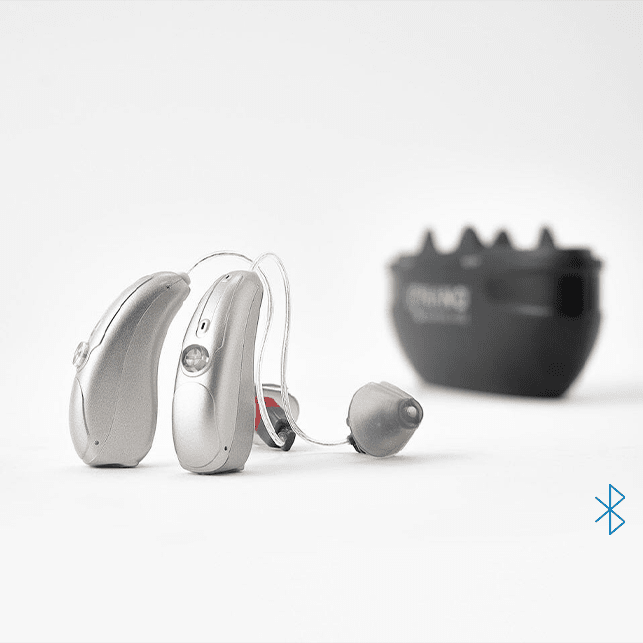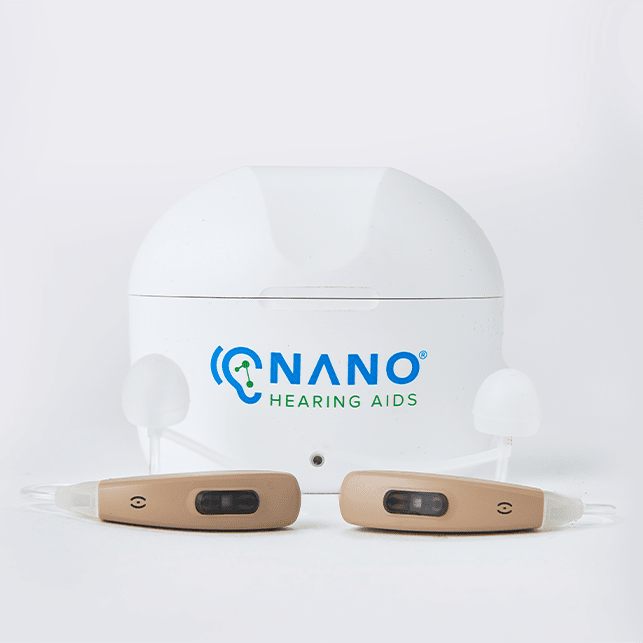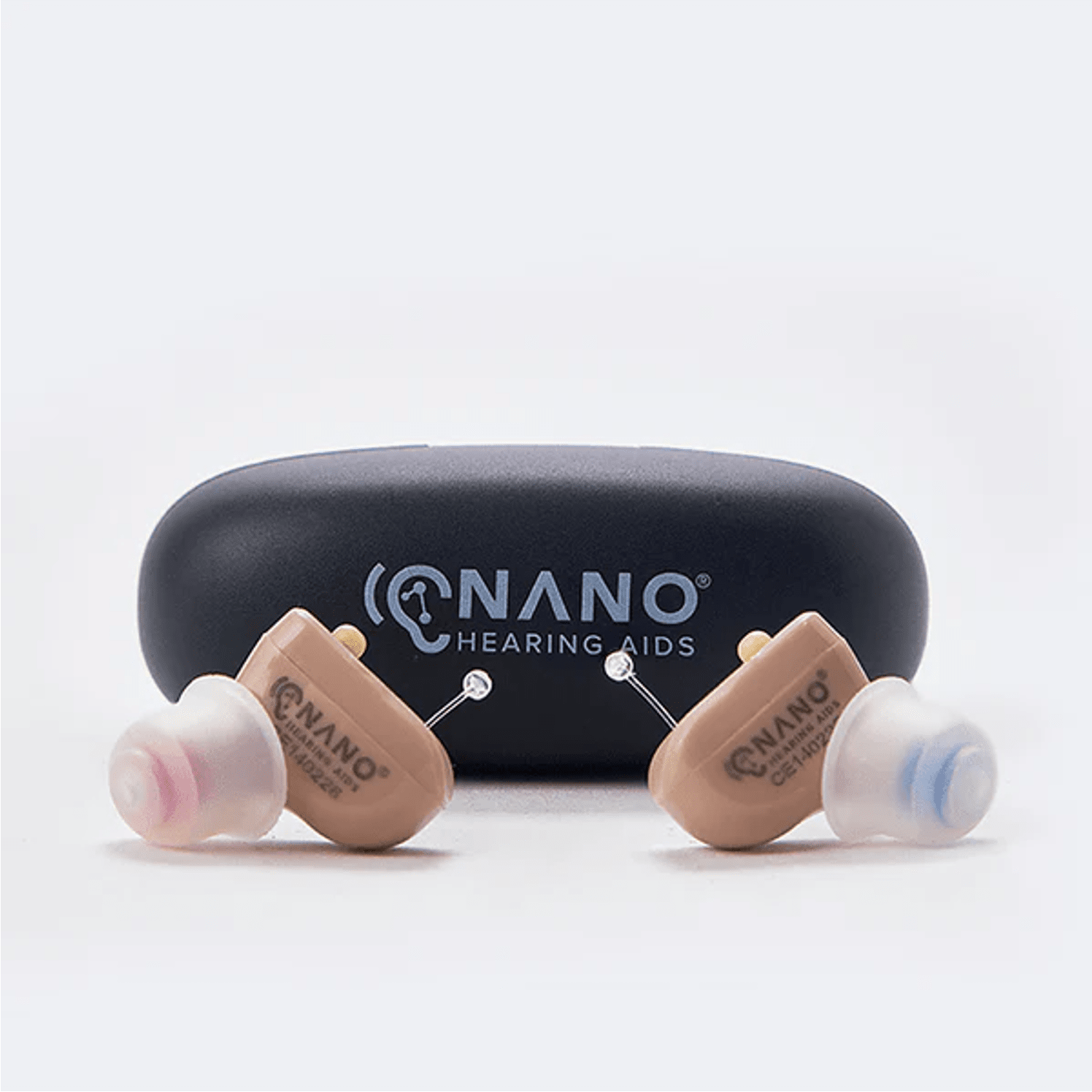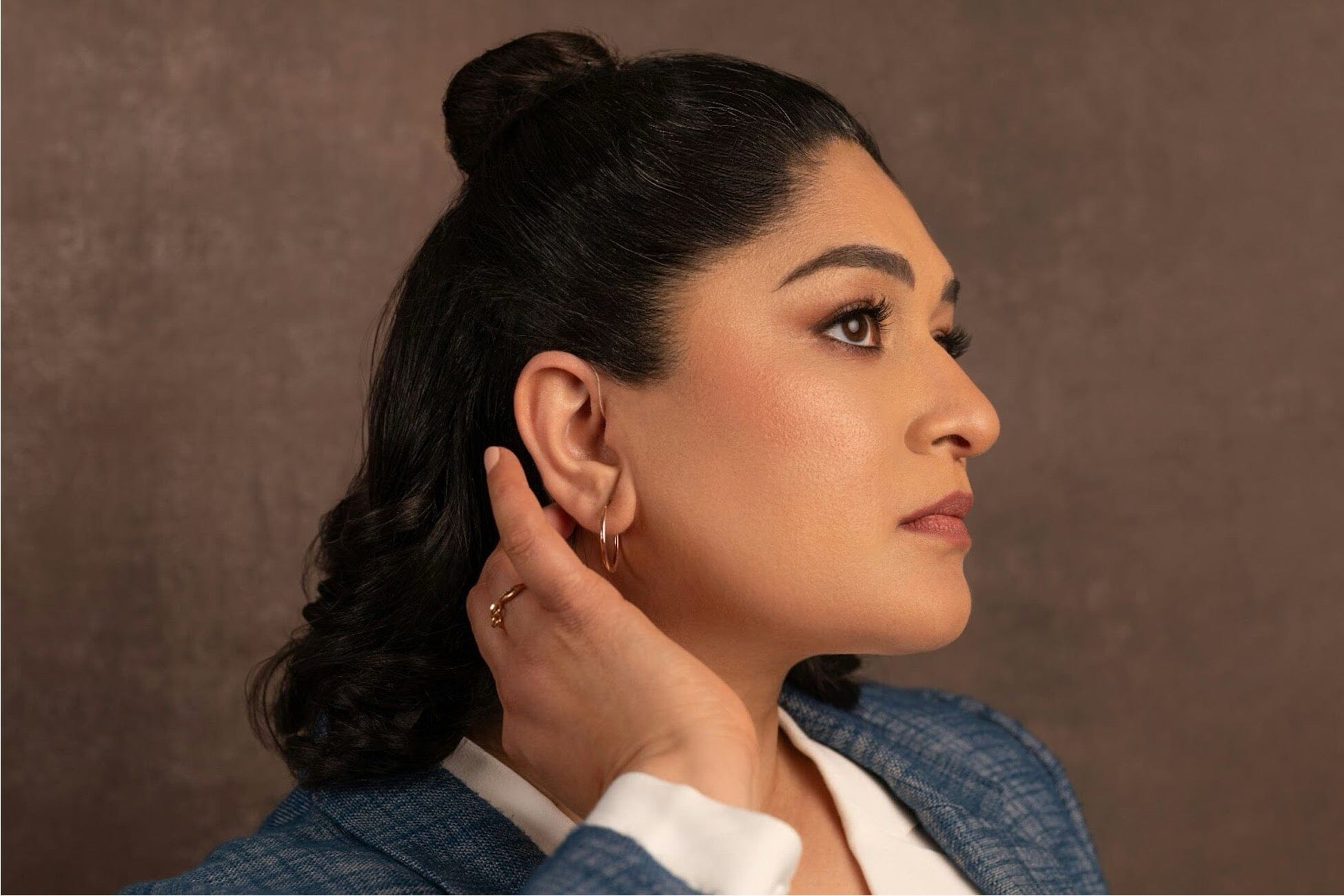Key Takeaways
- It's generally advised not to wear hearing aids while sleeping to give your ears a rest and preserve the device's battery life.
- For those with tinnitus or who need to be alert to certain sounds, wearing hearing aids at night may be beneficial, but adjustments are necessary.
- Store your hearing aids in a safe, dry place when not in use to prevent damage and maintain hygiene.
- Consider alternating ears if you must wear a hearing aid at night, to allow each ear relief from the physical device.
Can I Wear OTC Hearing Aids While Sleeping?
When it comes to wearing over-the-counter (OTC) hearing aids while sleeping, the short answer is that it's not recommended. Wearing them at night can lead to discomfort, reduced battery life, and potential damage to the device. But, there are exceptions to every rule. If you're dealing with tinnitus or have a need to hear certain sounds for safety reasons, wearing your hearing aids at night might be something you're contemplating.
Let's talk about how you can do this safely and comfortably if you choose to wear your hearing aids at night.
NANO Hearing Aids are FDA-registered, Class I devices. Our OTC hearing aids are designed for individuals over 18 years of age with perceived mild to moderate hearing impairment. With prices starting at just $297, they offer a viable solution for those looking to improve their hearing without breaking the bank.
Dos and Don'ts for Wearing OTC Hearing Aids While Sleeping
Do’s
- If possible, use an omnidirectional setting instead of a directional setting to ensure that all environmental sounds are amplified.
- Protect your ears: Consider using a soft pillow or one with a cutout for the ear to reduce pressure on the hearing aid and your ear. A quick internet search will help you find pillows designed with this in mind.
Don'ts
- Don't ignore discomfort: If you experience any pain or discomfort, take the hearing aids out.
- Don't forget to maintain hygiene: Wearing hearing aids at night can increase the risk of outer ear infections. Clean your devices regularly and keep your ears clean too.
- Don't wear them every night: If possible, give your ears a break. Alternate wearing them on different nights or take them out for short periods to let your ears rest.
- Don't disregard battery life: Continuously wearing your hearing aids can drain the battery faster. Be mindful of charging them or replacing batteries as needed.
OTC Hearing Aid Best Practices While Sleeping
If you've decided to wear your hearing aids at night, or if your situation requires it, let's focus on how to do this safely. The right approach can make all the difference in your comfort and the effectiveness of the hearing aid.
If you experience any pain or discomfort, take the hearing aids out.

Establishing a Nighttime Routine for Hearing Aid Users
Just like brushing your teeth before bed, having a nighttime routine for your hearing aids can help maintain both your comfort and the device's longevity. First, dial down the volume or switch to a program specifically set for nighttime use, if you have one. This can help reduce any unnecessary amplification of sounds while you're trying to sleep. Next, ensure that your ears and the hearing aids are clean before you settle in for the night to prevent any irritation or infection. Finally, if you don't need to wear them all night, consider taking them out just before you fall asleep.
Protecting Your Hearing Aids: Storage Solutions
When you're not wearing your hearing aids, they should be stored properly to ensure they stay in tip-top shape. A dry, cool place away from direct sunlight is ideal. Many hearing aids come with a storage case that is designed to protect them from moisture and dust. If your device is rechargeable, you can place it in the charging station. For those who don't wear their hearing aids at night, a dehumidifier case can be a worthwhile investment. It removes any moisture that's accumulated during the day, which extends the life of the device and keeps your ears healthy.
A Better Way to Rest with Hearing Aids
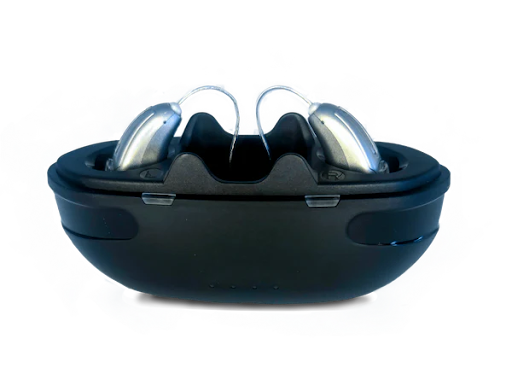
If you need to wear your hearing aids at night, be sure to create a comfortable environment. Use pillows designed for hearing aid users, keep the volume low, and ensure your bedroom is a peaceful sanctuary. With the right approach, you can enjoy the benefits of your hearing aids even as you rest.
If you're on the lookout for quality OTC hearing aids, browse our affordable range of completely-in-canal and behind-the-ear models, designed for adults with perceived mild to moderate hearing loss. For example, one of our newest models, Audacity® RIC, comes with three listening programs, powerful feedback cancellation, noise management technology, and Bluetooth streaming functionality. The model is rechargeable and works up to 17 hours in hearing aid mode.
To find out more about our model range and insurance coverage, contact our call center at (877) 265-7145.
Frequently Asked Questions (FAQ)
What Are the Long-Term Effects of Wearing Hearing Aids at Night?
Wearing hearing aids during sleep on a regular basis can potentially lead to a buildup of earwax or moisture, which might cause feedback issues or even damage the hearing aid. It's also possible for the shape of your ear canal to change slightly over time due to the constant pressure from the device, which could affect the fit and effectiveness of the hearing aid.
Can Wearing Hearing Aids Prevent Me from Hearing Alarms or Other Important Noises?
One of the main concerns about wearing hearing aids at night is whether they will prevent you from hearing important sounds, such as alarms or someone calling for help. The good news is, properly functioning hearing aids should amplify these sounds, making them easier to hear, not harder.
How Do I Care for My Hearing Aids if I Choose to Wear Them While Sleeping?
- Before going to bed, clean your hearing aids thoroughly to remove any earwax or debris.
- Use a dry cloth to wipe down the hearing aids and ensure they are moisture-free.
- Check the batteries and replace them if necessary, or ensure your rechargeable hearing aids are fully charged.
- Consider using a hearing aid dehumidifier overnight to protect against moisture damage.
- Regularly inspect the ear domes or molds for any signs of wear and tear and replace them as needed.
What features do Nano hearing aids have for nighttime use?
Nano hearing aids are designed with comfort and usability in mind, featuring adjustable volume controls and ergonomic designs that minimize discomfort.

